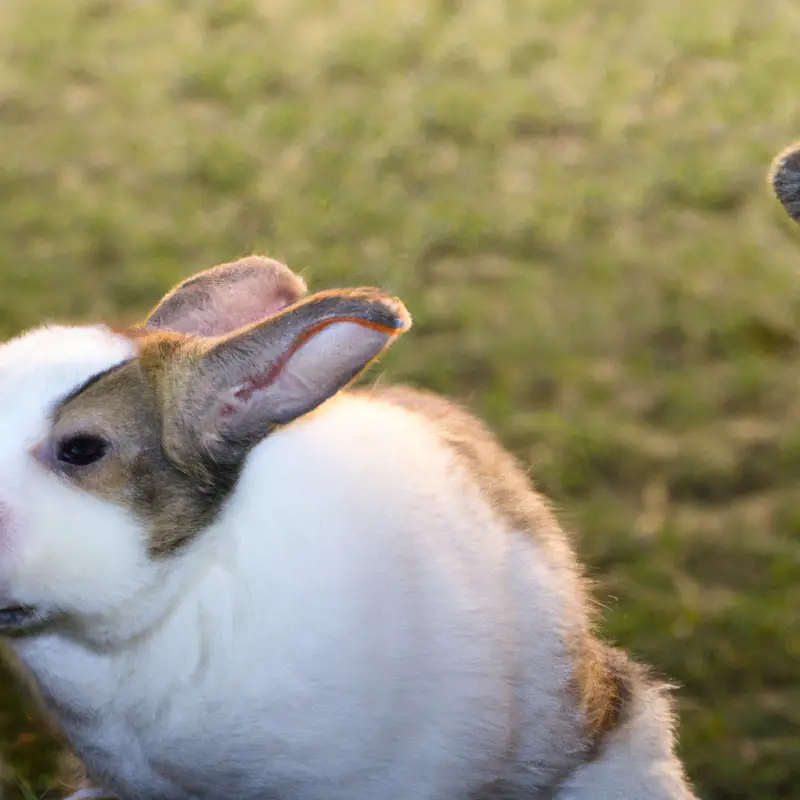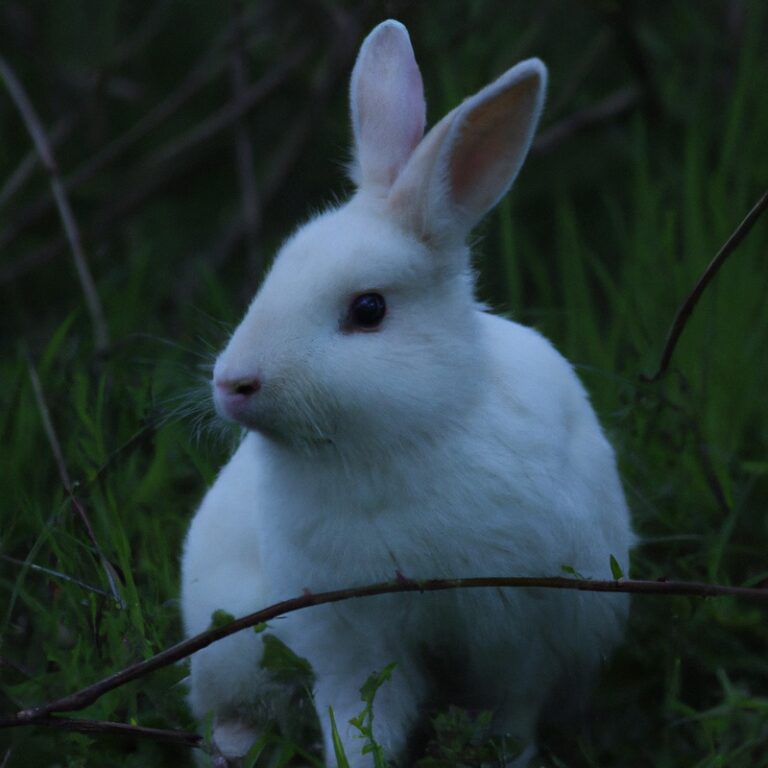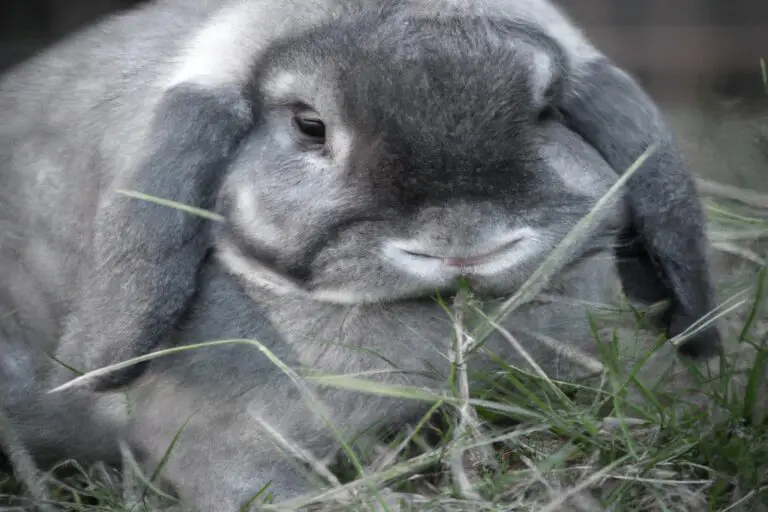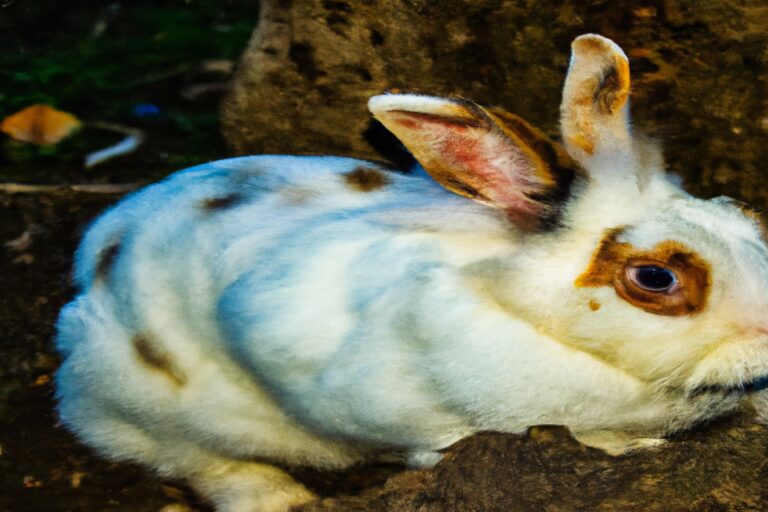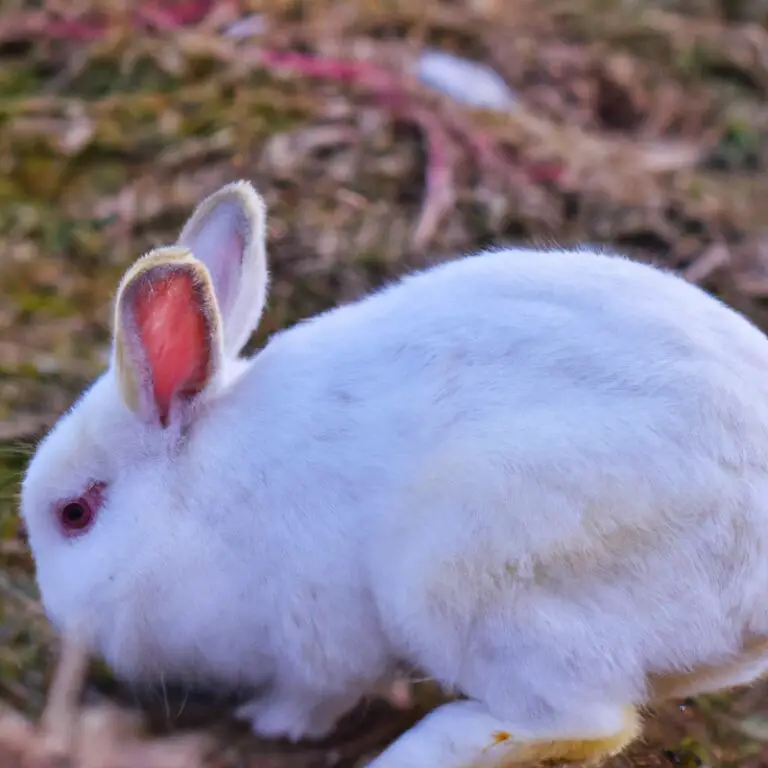Why Does My Rabbit Dig On Me…and Should I Be Worried?
Key Takeaways:
- Rabbits dig on you as a way to show affection and bond with you.
- Digging on you may also indicate that your rabbit is seeking attention or playtime.
- Some rabbits may dig on you to mark their territory and assert their dominance.
- Providing a designated digging area for your rabbit can help redirect their behavior.
Are you puzzled by why your cuddly rabbit suddenly turns into a tiny construction worker whenever they’re on your lap? Don’t worry, you’re not alone! In this article, we’ll delve into the fascinating world of rabbit behavior to unravel the reasons behind this peculiar digging habit.
From seeking attention and marking territory to boredom and nesting instincts, there’s more to your bunny’s digging antics than meets the eye.
So, grab your carrot-shaped reading glasses and let’s dig deeper to understand why your rabbit digs on you and how you can respond to this behavior in a rabbit-friendly way.
| Reason | Description |
| Instinctual behavior | Rabbits have a natural instinct to dig, and they may do so on their owners as a way of exploring their environment and establishing territory. |
| Seeking attention | Rabbits may dig on their owners to get their attention or to initiate playtime. It can be a form of communication to express their needs or desire for interaction. |
| Marking territory | By digging on their owners, rabbits may be trying to mark their territory and establish ownership. It is their way of showing that they consider their owner as part of their space. |
| Seeking comfort | Rabbits may dig on their owners as a way to find a cozy spot or to make themselves comfortable. This behavior is more likely to occur when they are seeking warmth or a secure place to relax. |
| Exploring textures and scents | Rabbits have an innate curiosity to explore different textures and scents. Digging on their owners may be a way for them to investigate and interact with the material and scent present on their owner’s clothing. |
Understanding Rabbit Behavior
Understanding rabbit behavior can help you develop a stronger bond with your pet.
Natural Instincts of Rabbits
Rabbits have a few natural instincts that are important to understand.
- Digging: Rabbits are natural burrowers and enjoy digging. Providing them with appropriate spaces or toys to dig can help satisfy this instinct.
- Chewing: Rabbits have continuously growing teeth and need to chew to keep them in check. Giving them safe and appropriate chew toys can prevent them from damaging furniture or other items.
- Hiding: Rabbits feel secure when they have a safe place to hide. Providing them with hideouts or enclosed spaces can help reduce their stress levels.
- Socializing: Rabbits are social animals and enjoy companionship. It’s important to provide them with opportunities to interact with other rabbits or spend time with their human caregivers.
Understanding these natural instincts can help you create a stimulating and happy environment for your rabbit.
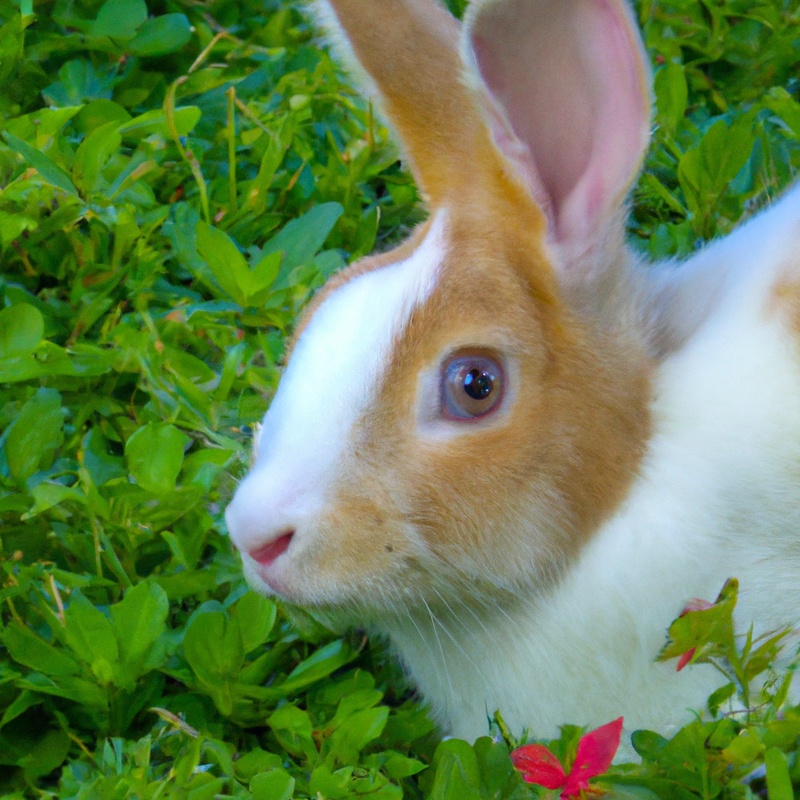
Communication through Behavior
Communication through behavior is a key aspect of understanding your rabbit.
Rabbits use various behaviors to convey their feelings and needs to you.
These behaviors can include digging, thumping, lunging, and more.
By observing and interpreting these behaviors, you can gain insight into what your rabbit is trying to communicate.
It’s important to pay attention to your rabbit’s body language, vocalizations, and actions, as they can provide valuable clues about their emotions and desires.
Remember, each rabbit is unique, so understanding their individual behaviors is essential for effective communication.
Importance of Digging for Rabbits
Digging is an important behavior for rabbits as it serves multiple purposes. It helps them to keep their nails trimmed and prevents them from becoming overgrown, which can be uncomfortable and lead to health issues.
Rabbits also dig to create burrows, which provide them with a sense of security and a place to rest and sleep.
Additionally, digging allows rabbits to engage in natural foraging behaviors, as they can search for roots, grasses, and other edible plants underground. Providing rabbits with appropriate digging areas and toys can help satisfy their instinctual need to dig and promote their overall well-being.

Reasons Why Rabbits Dig on Humans
Rabbits may dig on humans for several reasons, including seeking attention and affection, marking territory, boredom and excess energy, and nesting instincts.
Seeking Attention and Affection
When rabbits dig on humans, it can often be a way of seeking attention and affection. These small furry creatures crave interaction with their human companions and digging can be a way for them to engage and communicate with us.
By digging on you, they may be trying to get your attention and asking for some love and affection.
It’s their way of saying, “Hey, pay attention to me!” Some rabbits may also dig on humans to show you that they love and trust you. It’s a bonding behavior that helps them feel closer to you.
So, the next time your rabbit starts to dig on you, try giving them some gentle strokes and cuddles.
They will surely appreciate the attention and affection! But remember, rabbits have delicate skin, so be gentle while interacting with them.
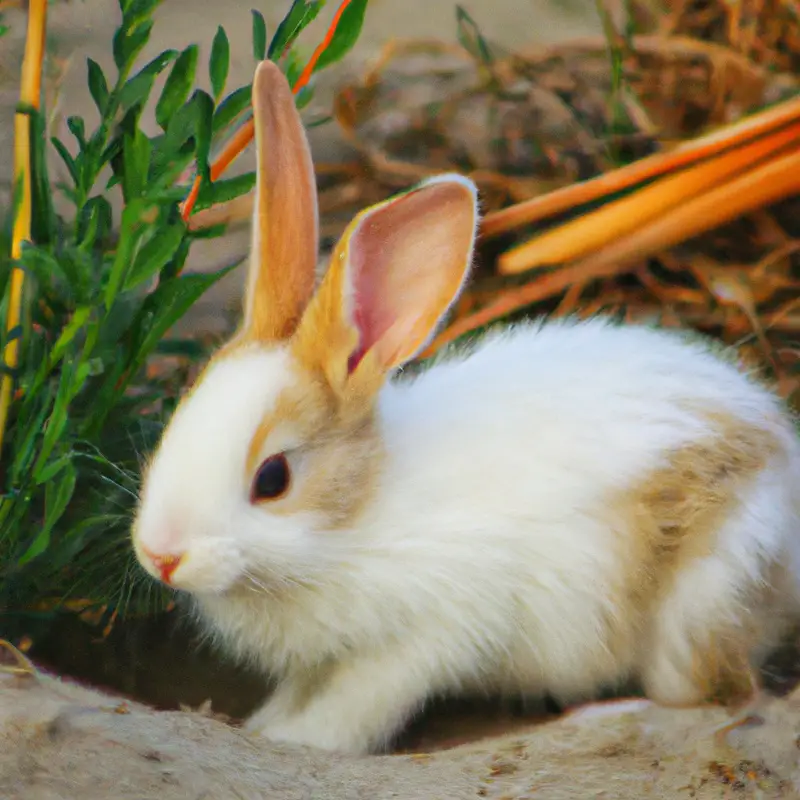
Marking Territory
Rabbits mark their territory by digging because it is a natural instinct. By digging, they leave their scent and create a physical marker that says, “This is mine.” It’s their way of staking claim and asserting dominance.
Additionally, rabbits have scent glands in their paws, so by digging, they are also spreading their scent around.
This behavior is common in both wild and domestic rabbits and is completely normal. However, if it becomes excessive or destructive, it may be a sign of underlying issues that should be addressed.
Boredom and Excess Energy
Boredom and excess energy are two common reasons why rabbits may dig on humans. Rabbits are intelligent and active animals, and if they don’t have enough mental stimulation or physical exercise, they may resort to digging on you for entertainment or to release their energy.
Providing your rabbit with plenty of toys, chewables, and interactive play sessions can help alleviate their boredom and prevent them from digging on you.
Additionally, ensuring that your rabbit has a large enough enclosure and enough space to run and explore can help burn off their excess energy and reduce the likelihood of them digging on you.
Nesting Instincts
Nesting instincts are a natural behavior in rabbits.
They dig and burrow to create a safe and comfortable space for themselves and their babies.
If your rabbit is digging on you, it may be trying to create a nest or seeking the warmth and security that your body provides.
This behavior is usually a sign of trust and affection from your rabbit.
Providing your rabbit with a suitable nesting box or blanket can help redirect this behavior.
How to Respond to Rabbit Digging
To respond to rabbit digging, provide attention and affection, create a suitable digging area, engage in play and exercise, and ensure spaying or neutering.
Providing Adequate Attention and Affection
When it comes to providing adequate attention and affection to your rabbit, it’s important to remember that they are social animals who thrive on companionship.
Spend quality time with your rabbit daily, engaging in activities like petting, grooming, and playing.
Create a comfortable and stimulating environment with toys, tunnels, and hiding spots.
Make sure to establish a regular routine for feeding and interacting with your rabbit.
Additionally, be mindful of their body language and behavior to understand their needs and emotions.
Your love and attention will contribute to a happy and well-adjusted rabbit.
Creating a Suitable Digging Area
Creating a suitable digging area for your rabbit is essential to satisfy their natural instinct to dig.
Here are a few tips to help you set up a digging space for your furry friend:
- Designate a specific area in your home or yard where your rabbit can dig freely.
- Use a shallow container filled with appropriate digging material, such as soil, sand, or shredded paper.
- Add some toys, treats, or hidden food to make the digging area more enticing.
- Ensure the digging area is secure and safe, with no hazards or toxic substances.
- Encourage your rabbit to use the designated area by redirecting their digging behavior whenever they start digging in inappropriate places.
Engaging in Play and Exercise
Engaging in play and exercise is key to keeping your rabbit happy and healthy. Provide your rabbit with toys and activities that stimulate its natural instincts, such as chewing and digging.
Offer safe, rabbit-specific toys made from materials like wood or cardboard.
You can also create obstacle courses with tunnels and ramps for your rabbit to explore. Regular exercise like hopping and running will help prevent boredom and maintain good physical health.
Allow your rabbit at least a few hours of supervised playtime outside its enclosure each day.
Remember to always ensure a safe and secure environment for your furry friend.
Ensuring Spaying or Neutering
Spaying or neutering your rabbit is essential for their overall wellbeing.
It helps to prevent certain health issues and unwanted behaviors.
By having this procedure done, you can eliminate the risk of reproductive diseases and reduce the chances of aggression and territorial marking.
It’s a simple and safe procedure that can be done by a veterinarian.
Schedule an appointment and consult with your vet to ensure a smooth process.
Common Mistakes to Avoid
Some common mistakes to avoid when your rabbit digs on you include punishing or shouting at your rabbit and ignoring the behavior. Additionally, make sure to provide suitable chew toys and not neglect their needs for attention and exercise.
Punishing or Shouting at Your Rabbit
Punishing or shouting at your rabbit is not a effective way to correct their behavior. Rabbits are sensitive animals that can become stressed or scared easily.
Yelling or physically punishing them can damage the trust between you and your rabbit.
Instead, focus on positive reinforcement and redirecting their behavior. Reward them when they display desired behaviors and provide appropriate outlets for their natural instincts, such as digging toys or tunnels.
Building a strong bond based on trust and understanding is key to addressing any behavioral issues in rabbits.
Ignoring the Behavior
Ignoring the behavior of your rabbit digging on you is not recommended. Rabbits dig for various reasons, such as marking territory or seeking attention.
Instead of ignoring it, try to understand why your rabbit is exhibiting this behavior.
Provide them with appropriate toys and outlets for digging, and spend quality time with them to reduce the need for attention-seeking behaviors. Consult with a veterinarian or an animal behaviorist for further guidance if the behavior persists.
Not Providing Suitable Chew Toys
Not providing suitable chew toys can be a big mistake when it comes to rabbits. Rabbits have a natural instinct to chew, and if they don’t have appropriate toys, they may turn to other objects like furniture or electrical cords.
Providing various chew toys made specifically for rabbits can help satisfy their chewing needs and prevent them from causing damage in your home.
Some good options include wooden toys, untreated wicker baskets, and cardboard tubes. Just make sure to avoid toys with small parts that could be swallowed.
Neglecting Their Needs for Attention and Exercise
Neglecting their needs for attention and exercise is one common mistake many rabbit owners make. Rabbits are social animals and require regular interaction and companionship.
They also need plenty of exercise to stay healthy and stimulated.
By neglecting these needs, you may be causing your rabbit to become bored, lonely, and even depressed. Ensure you dedicate time each day to play with your rabbit, providing mental and physical stimulation.
Provide them with toys, tunnels, and opportunities for exercise to keep them happy and healthy.
Frequently Asked Questions (FAQs)
Is rabbit digging a sign of aggression?
Is rabbit digging a sign of aggression? No, rabbit digging is not necessarily a sign of aggression.
Rabbits have a natural instinct to dig burrows, so it is a normal behavior.
They may dig on you or around you to get your attention, explore their surroundings, or even out of boredom. However, if your rabbit is displaying other signs of aggression such as growling, biting, or lunging, it is important to seek advice from a veterinarian or a rabbit behavior expert to address the underlying issues.
Can I train my rabbit to stop digging on me?
Yes, you can train your rabbit to stop digging on you. One way to do this is through positive reinforcement.
Whenever your rabbit starts digging, gently redirect their attention to a toy or treat.
Reward them when they engage with the desired behavior. Consistency is key, so be patient and repeat this training method.
Additionally, providing your rabbit with plenty of mental and physical stimulation can help reduce their urge to dig on you.
How can I differentiate between digging for attention and digging out of aggression?
Differentiating between digging for attention and digging out of aggression can be challenging, but there are a few clues you can look for. When a rabbit digs for attention, they may do it while you’re nearby, making eye contact, or trying to engage with you.
On the other hand, if a rabbit is digging out of aggression, they might exhibit other aggressive behaviors like biting, growling, or lunging.
It’s important to observe your rabbit’s body language and overall behavior to understand their intentions better.
Is it possible to completely eliminate rabbit digging behavior?
Completely eliminating rabbit digging behavior may be challenging, but it is possible to manage and minimize it through various methods. Providing your rabbit with appropriate outlets for their digging instincts, such as a designated digging box filled with diggable materials, can redirect their behavior.
Ensuring they have plenty of mental and physical stimulation, including toys and interactive playtime, can also help reduce the urge to dig.
Consistency, patience, and positive reinforcement in training can make a difference.
What are some other common rabbit behaviors I should be aware of?
Rabbits have a variety of common behaviors that you should be aware of as a rabbit owner. Here are some of them:
- Chewing: Rabbits have a natural need to chew on objects to keep their teeth healthy. Make sure to provide appropriate toys and safe items for them to chew on.
- Binkying: This is when a rabbit gets excited and jumps or twists in the air. It’s a sign that your rabbit is happy and playful.
- Thumping: Rabbits may thump their hind legs on the ground to communicate danger or to get your attention. It’s their way of saying, “Hey, something isn’t right!”
- Spraying: Unneutered male rabbits may spray urine to mark their territory. Consider getting your rabbit neutered if this behavior becomes a problem.
- Grooming: Rabbits are fastidious groomers and will spend a lot of time keeping themselves clean. Additionally, they may also groom their human companions as a sign of affection.
- Digging: Rabbits have a natural instinct to dig, which can be seen as a form of entertainment or a way of creating a cozy nesting area. Provide them with appropriate digging toys and a designated digging area to fulfill this behavior.
Remember, every rabbit has their unique personality and behaviors, so it’s essential to observe and understand your individual rabbit’s habits and preferences.
Final Verdict
Understanding rabbit behavior is crucial in addressing the issue of digging on humans. It is essential to recognize that digging is a natural instinct for rabbits and can be driven by various factors such as seeking attention, marking territory, boredom, or nesting instincts.
Responding effectively involves providing adequate attention and affection, creating a suitable digging area, engaging in play and exercise, and ensuring spaying or neutering.
However, it is important to avoid common mistakes like punishing or ignoring the behavior, not providing suitable chew toys, or neglecting their needs for attention and exercise. By approaching this behavior with patience, understanding, and a proactive approach, you can mitigate the issue and foster a harmonious relationship with your rabbit.

